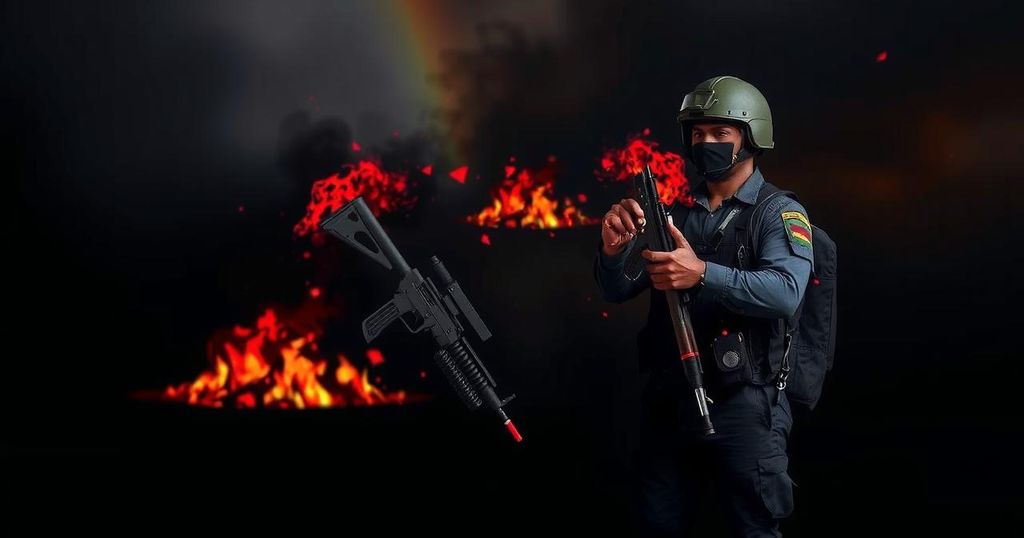SADC Addresses Mozambique’s Post-Election Violence in Extraordinary Summit

The SADC summit addressed the violent aftermath of Mozambique’s elections, where police allegedly killed 30 protesters. Opposition claims electoral fraud, while SADC committed to resolving the unrest. Notable figures, including PODEMOS representatives, called for transparent elections, emphasizing legal resolutions over violence.
The Southern African Development Community (SADC) convened an extraordinary summit in Zimbabwe to address rising post-election violence in Mozambique and ongoing conflicts in the eastern Democratic Republic of the Congo (DRC). This summit followed reports from civil society in Mozambique indicating that police brutality resulted in the deaths of at least 30 protesters. Opposition groups are alleging electoral fraud by the ruling FRELIMO party, claiming the elections on October 9 were neither free nor fair.
During the summit, SADC reaffirmed its dedication to ensuring political stability in Mozambique. Executive Secretary Elias Magosi expressed condolences for the lives lost and emphasized the need for a legal resolution to grievances rather than violence. Notably, Zimbabwean President Emmerson Mnangagwa focused on the DRC conflict, neglecting to comment on Mozambique’s situation.
Albino Forquilha of the Optimist Party for the Development of Mozambique (PODEMOS) criticized the electoral process, asserting that the announced results conflict with those collected from polling stations. Forquilha underscored the necessity for transparent validation of results, emphasizing that the constitutional court must involve representatives of all political parties to foster public acceptance of the election outcomes.
The backdrop of this discussion involves escalating violence in Mozambique following the recent elections, wherein police actions have been heavily scrutinized. The FRELIMO party, which has held power for decades, faces claims of election irregularities from opposition groups that participated in the electoral process. The SADC seeks to mediate and stabilize the political landscape, addressing the broader implications of unrest in the region, particularly in relation to neighboring conflicts such as those in the DRC.
In conclusion, the recent SADC summit highlighted serious concerns regarding the post-election violence in Mozambique, with calls for legal pathways to resolve disputes. The ongoing political turmoil, compounded by accusations of electoral fraud, poses significant challenges for the government of Mozambique. The need for transparent electoral processes and comprehensive dialogue among political stakeholders remains critical for restoring stability in the region.
Original Source: www.voanews.com







